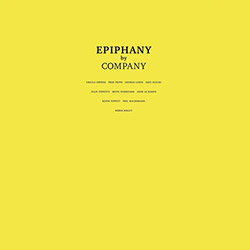
Derek Bailey's Company Week between June 29th and July 3rd in 1982 brought together a superb set of free and open-minded improvisers--including Keith Tippets, Phillip Waschmann, George Lewis, Julie Tippets, Fred Frith, &c--performing "Epiphany" (sides A & B) as a continuous work for all musicians, and "Epiphanies" (sides C & D), shorter pieces of smaller groupings.
Out of Stock
Quantity in Basket: None
Log In to use our Wish List
Shipping Weight: 32.00 units
Sample The Album:
Derek Bailey-acoustic guitar, electric guitar
Julie Tippetts-acoustic guitar, voice, flute
Moto Yoshizawa-bass
Fred Frith-electric guitar, electronics, percussion
Akio Suzuki-glass harmonica, performer, percussion, flute
Anne LeBaron-harp
Keith Tippett-piano
Ursula Oppens-piano
George Lewis-trombone
Philip Wachsmann-violin, electronics
Click an artist name above to see in-stock items for that artist.
Heavy Gatefold release with images of the performers in b&w on the inside jacket.
UPC: 769791975170
Label: Honest Jons Records
Catalog ID: HJR 211LP
Squidco Product Code: 28228
Format: 2 LPS
Condition: New
Released: 2019
Country: UK
Packaging: Double LP in a Gatefold Sleeve
Recorded between June 29 and July 3, 1982 in London during Company Week. The first LP is entitled 'Epiphany', the second 'Epiphanies'. 'Epiphany' is a continuous piece on which all the musicians play. 'Epiphanies' are shorter pieces played by smaller groupings of the same musicians.
"Epiphany i-ˈpi-fə-nē (1) a manifestation of the essential nature of something (usually sudden) (2) an intuitive grasp of reality through something (usually simple and striking) (3) an illuminating discovery or disclosure.
All three definitions apply perfectly to this span of music recorded at London's ICA in July 1982. It's a miracle of group interaction, wonderfully paced, moving steadily between moments of mounting intensity and tension. The passage about halfway through - when Derek Bailey's harmonics ring out above a sheen of inside piano tremolos and shimmering electronics, topped off by Julie Tippetts' soaring vocalese - is simply sublime. After which it's fun to try and tell the two pianists apart. Are those runs Ursula Oppens, with her formidable technique honed from years performing some of the twentieth century's most difficult notated new music, or are those Keith Tippett's crunchy jazz zigzags? Are those intriguing twangs from one of Akio Suzuki's invented instruments or could they be Fred Frith's or Phil Wachsmann's electronics? Bah, who cares?
There's plenty of room for the more delicate instruments too, like Anne LeBaron's harp picking its way gingerly through a pin-cushion of pings and scratches from Bailey and bassist Motoharu Yoshizawa. Of course, some performers are instantly recognisable: Tippetts, as lyrical and flighty on flute as when she sings, Phil Wachsmann, sinuous and sensitive on violin, and trombonist George Lewis, who, as John Zorn once put it, swings his motherfucking ass off.
So many magical moments abound, from the opening dawn chorus of Tippetts' voice and Frith's guitar swooping through a rainforest of exquisite piano cascades, to the Zen calm of the closing moments.
Epiphany, indeed."-Honest Jon's
Heavy Gatefold release with images of the performers in b&w on the inside jacket.
Artist Biographies
• Show Bio for Derek Bailey "Derek Bailey (29 January 1930 - 25 December 2005) was an English avant-garde guitarist and leading figure in the free improvisation movement. Bailey was born in Sheffield, England. A third-generation musician, he began playing the guitar at the age of ten, initially studying music with his teacher and Sheffield City organist C. H. C. Biltcliffe, an experience that he did not enjoy, and guitar with his uncle George Wing and John Duarte. As an adult he worked as a guitarist and session musician in clubs, radio, dance hall bands, and so on, playing with many performers including Morecambe and Wise, Gracie Fields, Bob Monkhouse and Kathy Kirby, and on television programs such as Opportunity Knocks. Bailey's earliest foray into 'what could be called free improvised music' was in 1953 with two other guitarists in their shared flat in Glasgow. He was also part of a Sheffield-based trio founded in 1963 with Tony Oxley and Gavin Bryars called "Joseph Holbrooke" (named after the composer, whose work they never actually played). Although originally performing relatively "conventional" modal, harmonic jazz this group became increasingly free in direction. Bailey moved to London in 1966, frequenting the Little Theatre Club run by drummer John Stevens. Here he met many other like-minded musicians, such as saxophonist Evan Parker, trumpet player Kenny Wheeler and double bass player Dave Holland. These players often collaborated under the umbrella name of the Spontaneous Music Ensemble, recording the seminal album Karyobin for Island Records in 1968. In this year Bailey also formed the Music Improvisation Company with Parker, percussionist Jamie Muir and Hugh Davies on homemade electronics, a project that continued until 1971. He was also a member of the Jazz Composer's Orchestra and Iskra 1903, a trio with double-bass player Barry Guy and tromboneist Paul Rutherford that was named after a newspaper published by the Russian revolutionary Vladimir Lenin. In 1970, Bailey founded the record label Incus with Tony Oxley, Evan Parker and Michael Walters. It proved influential as the first musician-owned independent label in the UK. Oxley and Walters left early on; Parker and Bailey continued as co-directors until the mid-1980s, when friction between the men led to Parker's departure. Bailey continued the label with his partner Karen Brookman until his death in 2005[citation needed]. Along with a number of other musicians, Bailey was a co-founder of Musics magazine in 1975. This was described as "an impromental experivisation arts magazine" and circulated through a network of like-minded record shops, arguably becoming one of the most significant jazz publications of the second half of the 1970s, and instrumental in the foundation of the London Musicians Collective. 1976 saw Bailey instigate Company, an ever-changing collection of like-minded improvisors, which at various times has included Anthony Braxton, Tristan Honsinger, Misha Mengelberg, Lol Coxhill, Fred Frith, Steve Beresford, Steve Lacy, Johnny Dyani, Leo Smith, Han Bennink, Eugene Chadbourne, Henry Kaiser, John Zorn, Buckethead and many others. Company Week, an annual week-long free improvisational festival organised by Bailey, ran until 1994. In 1980, he wrote the book Improvisation: Its Nature and Practice. This was adapted by UK's Channel 4 into a four-part TV series in the early '90s, edited and narrated by Bailey. Bailey died in London on Christmas Day, 2005. He had been suffering from motor neurone disease." ^ Hide Bio for Derek Bailey • Show Bio for Julie Tippetts "Julie Tippetts (born Julie Driscoll, 8 June 1947) is an English singer and actress, known for her 1960s versions of Bob Dylan and Rick Danko's "This Wheel's on Fire", and Donovan's "Season of the Witch", both with Brian Auger and The Trinity. Along with The Trinity, she was featured prominently in the 1969 television special 33 1/3 Revolutions Per Monkee, singing "I'm a Believer" in a soul style with Micky Dolenz. She and Auger had previously worked in Steampacket, with Long John Baldry and Rod Stewart. "This Wheel's on Fire" reached number five in the United Kingdom in June 1968. With distortion, the imagery of the title and the group's dress and performance, this version came to represent the psychedelic era in British rock music. Driscoll recorded the song again in the early 1990s with Adrian Edmondson as the theme to the BBC comedy series Absolutely Fabulous, the main characters of which are throwbacks to that era. Since the 1970s, Driscoll has concentrated on experimental vocal music. She married jazz musician Keith Tippett and collaborated with him and now uses the name Julie Tippetts, adopting the original spelling of her husband's surname. She took in Keith Tippett's big band Centipede and in 1974 sang in Robert Wyatt's Theatre Royal Drury Lane concert. She released a solo album, Sunset Glow in 1975; and was lead vocalist on Carla Bley's album Tropic Appetites and also in John Wolf Brennan's "HeXtet". Later in the 1970s, she toured with her own band and recorded and performed as one of the vocal quartet Voice, with Maggie Nichols, Phil Minton, and Brian Eley. In the early 1980s, Julie Tippetts was a guest vocalist on an early single by pop-jazz band Working Week, on the song "Storm of Light", which brought them to the attention of a wider audience." ^ Hide Bio for Julie Tippetts • Show Bio for Fred Frith "Though the point of reference for many remains the iconic band Henry Cow, which he co-founded in 1968 and which broke up more than 30 years ago, Fred Frith has never really stood still for an instant. In bands such as Art Bears, Massacre, Skeleton Crew, Keep the Dog, Tense Serenity, the Fred Frith Guitar Quartet, Eye to Ear, and most recently Cosa Brava, he has always held true to his roots in rock and folk music, while exploring influences that range from the literary works of Eduardo Galeano to the art installations of Cornelia Parker. The release of the seminal Guitar Solos in 1974 enabled him to simultaneously carve out a place for himself in the international improvised music scene, not only as an acclaimed solo performer but in the company of artists as diverse as Han Bennink, Chris Cutler, Jean-Pierre Drouet, Evelyn Glennie, Ikue Mori, Louis Sclavis, Stevie Wishart, Wu Fei, Camel Zekri, John Zorn, and scores of others. He has also developed a personal compositional language in works written for Arditti Quartet, Asko Ensemble, Bang on a Can All-Stars, Ensemble Modern, Concerto Köln, and ROVA Sax Quartet, for example. Fred has been active as a composer for dance since the early 1980s, working with choreographers Bebe Miller, François Verret, and especially long-time collaborator and friend Amanda Miller, with whom he has created a compelling body of work over the last twenty years. His film soundtracks (for award-winning films like Thomas Riedelsheimer's Rivers and Tides and Touch the Sound, Peter Mettler's Gambling, Gods, and LSD, and Deborah Kaufman and Alan Snitow's Thirst, to name a few) won him a lifetime achievement award from Prague's "Music on Film, Film on Music" Festival (MOFFOM) in 2007. The following year he received Italy's Demetrio Stratos Prize (previously given to Diamanda Galas and Meredith Monk) for his life's work in experimental music, and in 2010 was awarded an honorary doctorate from the University of Huddersfield in his home county of Yorkshire. Fred currently teaches in the Music Department at Mills College in Oakland, California (renowned for over fifty years as the epicenter of the American experimental tradition), and in the Musik Akademie in Basel, Switzerland." ^ Hide Bio for Fred Frith • Show Bio for Akio Suzuki "Akio Suzuki is known as a pioneer of sound art, but the breadth of his activities and the form of his works far exceeds the normal boundaries of sound art. It is perhaps more as a "quester after sound and space" that he has received the most attention from artists in many fields.Suzuki's journey as an artist began in 1963 with a performance at Nagoya station, in which he threw a bucket full of junk down a staircase. The inspiration behind this performance - the idea that if one were to hurl an object down a well-balanced stairway, a pleasant rhythm might be the result - took the desire to "listen" as its subject. That desire to hear, to listen has remained the one constant in Suzuki's stance as an artist. During the sixties, Suzuki's sense of playfulness led him to undertake a series of Self-Study Events, where he explored the processes of "throwing" and "following", taking the natural world as his collaborator. The experiences he gained in these events led him in the seventies to invent an echo instrument he named Analapos. The instrument's structure resembles that of two mirrors facing each other, reflecting into infinity. As an extension of the principles underlying Analapos, Suzuki constructed the Hinatabokko no kukan (Space in the Sun) in 1988. This space consists of two huge parallel walls, in between which the artist can sit all day and purify his hearing by listening to the reflected sounds of nature. This space leads the artist to discover a new method of listening. Suzuki himself comments, "Sound, which had been conceptually imprisoned in various spaces, is freed to circle the world." From the late seventies and through the eighties, Suzuki also developed a form of performance he refers to as Conceptual Soundwork. Applying a number of self-imposed, simple and austere rules, he uses objects close at hand in a mode of "intellectual play". While these events do on the one hand express a critique of meaningless improvised performance, at the same time Suzuki is constantly aware of the audience's process of listening and he attempts to create contemporaneous connections with the site of performance. It was around this time that Suzuki began to travel frequently to the US and Europe, and his performances at leading music festivals, Festival d'Automne (Paris, 1978) and Documenta 8 (Kassel, 1987) were rapturously received. As sound art enjoyed a period of prosperity in the nineties, Suzuki was given the chance to create many installations, particularly in Berlin. Worthy of special note were his soundless installations, such as Otodate (Echo point, 1996) in Berlin, Enghien-les-Bains (since 1997, http://www.insitu-enghien.org/) and Strasbourg; Hana (Flower, 1997) at the Stadtgalarie Saarbrucken; and Pyramid (1999) which involved people excavating sounds. These soundless pieces were not designed to critique the old perceptual theories of music, rather they questioned the very location of music. Through their encounter with these works, the past experiences and memories of viewers were reconstructed as new experiences. This process was fundamental to the action of "listening" to the works. From the late seventies and through the eighties, Suzuki also developed a form of performance he refers to as Conceptual Soundwork. Applying a number of self-imposed, simple and austere rules, he uses objects close at hand in a mode of "intellectual play". While these events do on the one hand express a critique of meaningless improvised performance, at the same time Suzuki is constantly aware of the audience's process of listening and he attempts to create contemporaneous connections with the site of performance. It was around this time that Suzuki began to travel frequently to the US and Europe, and his performances at leading music festivals, Festival d'Automne (Paris, 1978) and Documenta 8 (Kassel, 1987) were rapturously received. As sound art enjoyed a period of prosperity in the nineties, Suzuki was given the chance to create many installations, particularly in Berlin. Worthy of special note were his soundless installations, such as Otodate (Echo point, 1996) in Berlin, Enghien-les-Bains (since 1997, http://www.insitu-enghien.org/) and Strasbourg; Hana (Flower, 1997) at the Stadtgalarie Saarbrucken; and Pyramid (1999) which involved people excavating sounds. These soundless pieces were not designed to critique the old perceptual theories of music, rather they questioned the very location of music. Through their encounter with these works, the past experiences and memories of viewers were reconstructed as new experiences. This process was fundamental to the action of "listening" to the works." ^ Hide Bio for Akio Suzuki • Show Bio for Anne LeBaron "A West Coast experimentalist who is an innovative performer on the harp as well as a composer embracing unusual challenges, Anne LeBaron's compositions have been performed around the globe. Venues in Italy, Mexico, Sydney, Vienna, Sweden, Kazakhstan, New York, Los Angeles, and elsewhere have programmed her works for chamber groups, opera, cantatas, and presented her as a performer. Her operas celebrate legendary figures such as Pope Joan, Eurydice, Marie Laveau, the American Housewife, and Aldous Huxley. Her current opera-in-progress, Huxley's Last Trip, (formerly LSD: The Opera) was awarded one of the first Discovery Grants from Opera America. The orchestra includes instruments built by American composer and inventor Harry Partch. Excerpts have been performed at three LA venues: at the Wallis Annenberg Theater in Beverly Hills, at the MAK Center for Art and Architecture at the Schindler House, and at the REDCAT in downtown Los Angeles. LeBaron was recently awarded a Copland House Residency in New York, a Djerassi Program residency in Santa Cruz, and a residency at the Corporation of Yaddo in Saratoga Springs. Radiant Depth Unfolded: Settings of Rumi, commissioned by The Sorel Organization and SongFest, premiered in Zipper Hall at the Colburn School in Los Angeles. The Los Angeles Library Foundation commissioned her to compose a work inspired by the Oxford English Dictionary: A - Zythum premiered at the Hammer Museum. Mark Robson performed her work for speaking pianist, Los Murmullos, on the LA series PianoSpheres, and more recently at the American Center in Paris. The acclaimed French harpist Helene Breschand performed her work Harpestra: Concerto for Two Harps, One Player. Current projects include Resonare-a work commissioned by Aaron Khan for trumpet and spatialized audio; a new installment for The Well-Read Clavier for pianist Lorezo Marasso based on writings by Beppe Fenoglio and commissioned by the Ferrero Foundation; and an opera, This Lingering Life, blending and updating five ancient Noh dramas to convey their universal relevance. In the fall of 2017, she will be the featured international artist and keynote speaker at the Totally Huge New Music Festival in Perth, Australia. Recordings of her music are available on Mode, New World Records, Ear-Rational, Innova, Music and Art, and Albany. As a member of the School of Music faculty at CalArts, she has developed highly original courses blending theater, art history, cultural topics, and music while encouraging students to actively create work incorporating what they are absorbing. These include HyperOpera; Concert Theater; Musical Reflections of Surrealism; Music of Harry Partch; Contemplative Practices, Musical Arts, Compassionate Mind; and Writing for Everything Else. LeBaron serves on the boards of the American Composers Forum, where she is Vice-Chair, and as a Member of the Corporation of Yaddo. Also an accomplished harpist, she is renowned for pioneering methods of extended harp techniques, electronic enhancements, and notation in compositional and improvisational contexts. In the current season, she lectured on her music at the University of California Irvine, the University of Southern California, the University of California Los Angeles, and Cal State Fullerton. For the past two years, she led a master class for composition students visiting LA from Shanghai, under the auspices of the Bright Institute." ^ Hide Bio for Anne LeBaron • Show Bio for Keith Tippett "Keith Tippett (born Keith Graham Tippetts; 25 August 1947) is a British jazz pianist and composer. Tippett was born in Southmead, Bristol. The son of an English father who was a policeman and an Irish mother name of Kitty. Keith wrote music dedicated to her after she died. Keith was the oldest of three siblings and had Clive and Thomas as brothers. Tippett went to Greenway Secondary Modern school in Southmead, Bristol. He formed his first band when he was fourteen with school friends, such as Richard Murch, Mike Milton, Terry Pratt and Bob Chard. They were called the KT Trad Lads performing Traditional jazz. Later Keith formed a modern jazz trio in Bristol and played regularly at the Dugout Club in Park Row, Bristol. He studied Piano and Church Organ, was a chorister and played with the school and Bristol youth brass bands. He moved to London in 1967, to pursue a musical life. In the late 1960s, Tippett led a sextet featuring Elton Dean on saxophone, Mark Charig on trumpet and Nick Evans on trombone. Tippett married singer Julie Driscoll and wrote scores for TV. In the early 1970s, his big band Centipede brought together much of a generation of young British jazz and rock musicians. As well as performing some concerts (limited economically by the size of the band), they recorded one double-album, Septober Energy. He formed, with Harry Miller and Louis Moholo a formidable rhythm section at the centre of some the most exciting combinations in the country, including the Elton Dean quartet, and Elton Dean's Ninesense. Around the same time, he was also in the vicinity of King Crimson, contributing piano to several of their records including "Cat Food" (and even appearing with them on Top of the Pops). His own groups, such as Ovary Lodge tended towards a more contemplative form of European free improvisation. He continues to perform with the improvising ensemble Mujician and more recently (2006) Work in Progress. Tippett has appeared and recorded in a wide variety of settings, including a duet with Stan Tracey, duets with his wife Julie Tippetts, solo performances, and appeared on three King Crimson albums." ^ Hide Bio for Keith Tippett • Show Bio for Ursula Oppens "Ursula Oppens, a legend among American pianists, is widely admired for her original and perceptive readings of new music, but also for her knowing interpretations of the standard repertoire. No other artist alive today has commissioned and premiered more new works for the piano that have entered the permanent repertoire. Over the years, Ms. Oppens has premiered works by such leading composers as John Adams, Luciano Berio, Anthony Braxton, Elliott Carter, John Corigliano, John Harbison, Julius Hemphill, Conlon Nancarrow, Charles Wuorinen, as well as many more. A prolific recording artist with five Grammy nominations, Ms. Oppens most recently released a recording of Frederic Rzewski's The People United Will Never Be Defeated, nominated for a Grammy in 2016, and Piano Songs, a collaboration with Meredith Monk. Earlier releases include Winging It: Piano Music of John Corigliano; Oppens Plays Carter; a recording of Elliot Carter's complete piano works for Cedille Records; Piano Music of Our Time featuring compositions by John Adams, Elliott Carter, and others; and a two-piano CD for Cedille Records devoted to Messiaen's Visions de l'Amen and Debussy's En blanc et noir performed with pianist Jerome Lowenthal. Currently Ms. Oppens is performing special 80th birthday programs for Messrs. Corigliano, Rzewski, and Wuorinen. Other performances appearances will include performances of works by Jonathan Harvey, and a joint recital with pianist Phillip Moll which will feature Mozart's Concerto for two Pianos.As an orchestral guest soloist, Ms. Oppens has performed with virtually all of the world's major orchestras; highlights include the Boston Symphony, Chicago Symphony, New York Philharmonic, Los Angeles Philharmonic, Berlin Symphony, and London Philharmonic Orchestras. Ms. Oppens is also an avid chamber musician, performing with the Arditti, Juilliard, and Pacifica quartets, among others. Ursula Oppens joined the faculty of Mannes College in fall 2017, and is a Distinguished Professor of Music at Brooklyn College and the CUNY Graduate Center in New York City." ^ Hide Bio for Ursula Oppens • Show Bio for George Lewis "George E. Lewis is the Edwin H. Case Professor of American Music at Columbia University. A 2015 Fellow of the American Academy of Arts and Sciences and a Corresponding Fellow of the British Academy, Lewis has received a MacArthur Fellowship (2002), a Guggenheim Fellowship (2015), a United States Artists Walker Fellowship (2011), an Alpert Award in the Arts (1999), and fellowships from the National Endowment for the Arts. In 2015, Lewis received the degree of Doctor of Music (DMus, honoris causa) from the University of Edinburgh. A member of the Association for the Advancement of Creative Musicians (AACM) since 1971, Lewis's work in electronic and computer music, computer-based multimedia installations, and notated and improvisative forms is documented on more than 140 recordings. His work has been presented by the BBC Scottish Symphony Orchestra, London Philharmonia Orchestra, Radio-Sinfonieorchester Stuttgart, Boston Modern Orchestra Project, Talea Ensemble, Dinosaur Annex, Ensemble Pamplemousse, Wet Ink, Ensemble Erik Satie, Eco Ensemble, and others, with commissions from American Composers Orchestra, International Contemporary Ensemble, Harvestworks, Ensemble Either/Or, Orkestra Futura, Turning Point Ensemble, San Francisco Contemporary Music Players, 2010 Vancouver Cultural Olympiad, IRCAM, Glasgow Improvisers Orchestra, and others. Lewis has served as Ernest Bloch Visiting Professor of Music, University of California, Berkeley; Paul Fromm Composer in Residence, American Academy in Rome; Resident Scholar, Center for Disciplinary Innovation, University of Chicago; and CAC Fitt Artist In Residence, Brown University. Lewis received the 2012 SEAMUS Award from the Society for Electro-Acoustic Music in the United States, and his book, A Power Stronger Than Itself: The AACM and American Experimental Music (University of Chicago Press, 2008) received the American Book Award and the American Musicological Society's Music in American Culture Award. Lewis is co-editor of the two-volume Oxford Handbook of Critical Improvisation Studies (2016), and his opera Afterword, commissioned by the Gray Center for Arts and Inquiry at the University of Chicago, premiered at the Museum of Contemporary Art Chicago in October 2015 and has been performed in the United States, United Kingdom, and the Czech Republic. Professor Lewis came to Columbia in 2004, having previously taught at the University of California, San Diego, Mills College, the School of the Art Institute of Chicago, the Koninklijke Conservatorium Den Haag, and Simon Fraser University's Contemporary Arts Summer Institute. Lewis studied composition with Muhal Richard Abrams at the AACM School of Music, and trombone with Dean Hey." ^ Hide Bio for George Lewis
7/9/2025
Have a better biography or biography source? Please Contact Us so that we can update this biography.
7/9/2025
Have a better biography or biography source? Please Contact Us so that we can update this biography.
7/9/2025
Have a better biography or biography source? Please Contact Us so that we can update this biography.
7/9/2025
Have a better biography or biography source? Please Contact Us so that we can update this biography.
7/9/2025
Have a better biography or biography source? Please Contact Us so that we can update this biography.
7/9/2025
Have a better biography or biography source? Please Contact Us so that we can update this biography.
7/9/2025
Have a better biography or biography source? Please Contact Us so that we can update this biography.
7/9/2025
Have a better biography or biography source? Please Contact Us so that we can update this biography.
Track Listing:
SIDE A
1. Epiphany Part 1 20:20
SIDE B
1. Epiphany Part 2 27:51
SIDE C
1. First (Duo) 15:12
2. Second (Trio) 8:05
3. Third (Quintet) 10:45
SIDE D
1. Fourth (Sextet) 8:50
2. Fifth (Septet) 6:20
3. Sixth (Trio) 18:26
Vinyl Recordings
Improvised Music
Free Improvisation
Electro-Acoustic
Electro-Acoustic Improv
London & UK Improv & Related Scenes
Large Ensembles
Bailey, Derek
Frith, Fred
Jazz Reissues
Search for other titles on the label:
Honest Jons Records.


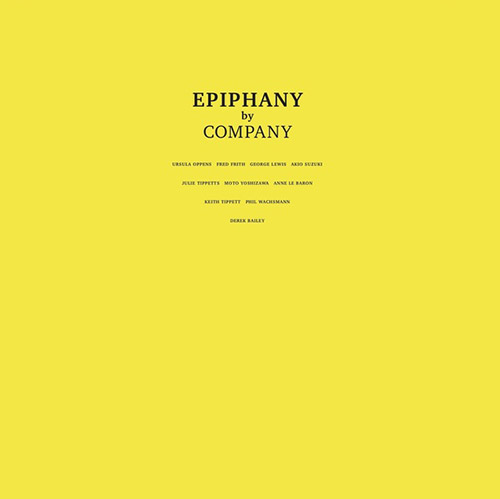
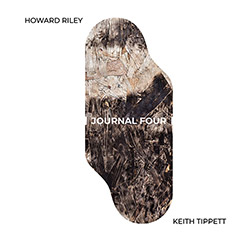
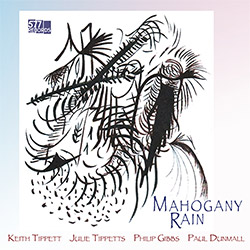

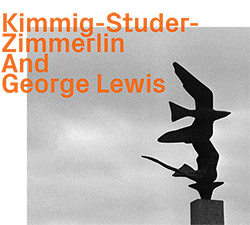
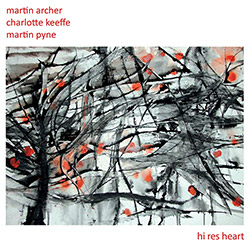
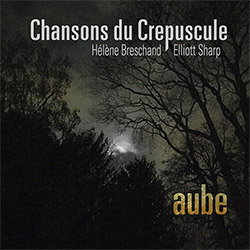
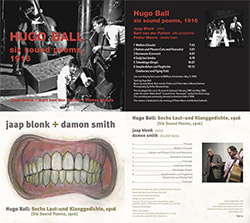

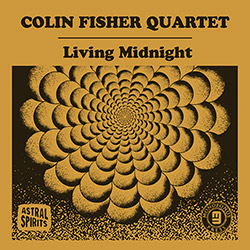
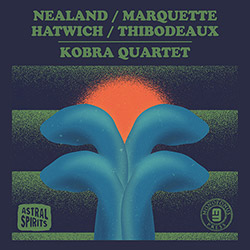
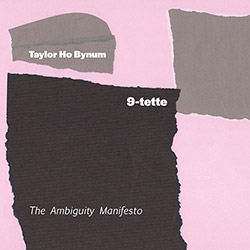
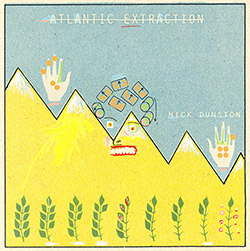
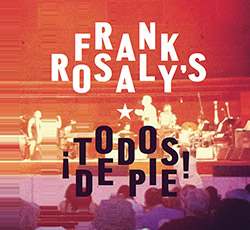


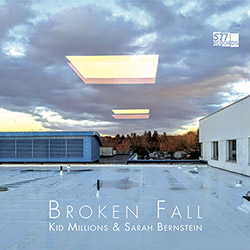

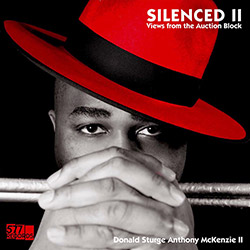



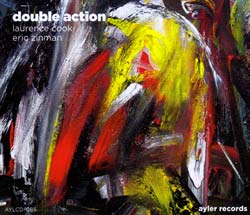




![BlueRing Improvisers: Materia [2 CDs]](https://www.teuthida.com/productImages/misc4/36513.jpg)








![Wheelhouse (Rempis / Adasiewicz / McBride): House And Home [VINYL]](https://www.teuthida.com/productImages/misc4/36462.jpg)
![+DOG+: The Light Of Our Lives [2 CDs]](https://www.teuthida.com/productImages/misc4/36009.jpg)


![Parker, Evan / Jean-Marc Foussat: Insolence [VINYL]](https://www.teuthida.com/productImages/misc4/36398.jpg)










![Deupree, Jerome / Sylvie Courvoisier / Lester St. Louis / Joe Morris: Canyon [2 CDs]](https://www.teuthida.com/productImages/misc4/36404.jpg)



![Eventless Plot | Haarvol: The Subliminal Paths [CASSETTE + DOWNLOAD]](https://www.teuthida.com/productImages/misc4/36232.jpg)










![Eventless Plot | Francesco Covarino: Methexis [CASSETTE + DOWNLOAD]](https://www.teuthida.com/productImages/misc4/36231.jpg)



![Das B (Mazen Kerbaj / Mike Majkowski / Magda Mayas / Tony Buck): Love [VINYL]](https://www.teuthida.com/productImages/misc4/36329.jpg)


![Eternities: Rides Again [CASSETTE]](https://www.teuthida.com/productImages/misc4/36247.jpg)
![Lopez, Francisco: Untitled (2021-2022) [2 CDs]](https://www.teuthida.com/productImages/misc4/36438.jpg)






![Money : Money 2 [2 CDs]](https://www.teuthida.com/productImages/misc4/35894.jpg)




![Klinga, Erik: Elusive Shimmer [VINYL]](https://www.teuthida.com/productImages/misc4/36258.jpg)
![CHANGES TO blind (Phil Zampino): Volume 9 - I Wave on a Fine Vile Mist [CD + DOWNLOAD]](https://www.teuthida.com/productImages/misc4/36061.jpg)

![Wallmart / Rubbish: Asset Protection [split CD]](https://www.teuthida.com/productImages/misc4/35900.jpg)


![+Dog+: The Family Music Book Vol. 5 [2 CDs]](https://www.teuthida.com/productImages/misc4/35897.jpg)
![Kuvveti, Deli : Kuslar Soyledi [CASSETTE w/ DOWNLOAD]](https://www.teuthida.com/productImages/misc4/36107.jpg)

![Brown, Dan / Dan Reynolds: Live At The Grange Hall [unauthorized][CASSETTE]](https://www.teuthida.com/productImages/misc4/36245.jpg)








![Palestine, Charlemagne / Seppe Gebruers: Beyondddddd The Notessssss [VINYL]](https://www.teuthida.com/productImages/misc4/36206.jpg)
![Palestine, Charlemagne / Seppe Gebruers: Beyondddddd The Notessssss [NEON GREEN VINYL]](https://www.teuthida.com/productImages/misc4/36207.jpg)

![Laubrock, Ingrid: Purposing The Air [2 CDs]](https://www.teuthida.com/productImages/misc4/35639.jpg)

![Yoko, Ono / The Great Learning Orchestra: Selected Recordings From Grapefruit [2 CDs]](https://www.teuthida.com/productImages/misc4/35841.jpg)









![Zorn, John / JACK Quartet: The Complete String Quartets [2 CDs]](https://www.teuthida.com/productImages/misc4/35609.jpg)

![Lonsdale, Eden: Dawnings [2 CDs]](https://www.teuthida.com/productImages/misc4/35480.jpg)



![Sorry For Laughing (G. Whitlow / M. Bates / Dave-Id / E. Ka-Spel): Rain Flowers [2 CDS]](https://www.teuthida.com/productImages/misc4/35985.jpg)

![Rolando, Tommaso / Andy Moor : Biscotti [CASSETTE w/ DOWNLOADS]](https://www.teuthida.com/productImages/misc4/36106.jpg)


![Electric Bird Noise / Derek Roddy: 8-10-22 [CD EP]](https://www.teuthida.com/productImages/misc4/35970.jpg)








![Elephant9 : Mythical River [VINYL]](https://www.teuthida.com/productImages/misc4/34624.jpg)



![Elephant9 with Terje Rypdal: Catching Fire [VINYL 2 LPs]](https://www.teuthida.com/productImages/misc4/35355.jpg)
![Deerlady (Obomsawin, Mali / Magdalena Abrego): Greatest Hits [VINYL]](https://www.teuthida.com/productImages/misc4/34876.jpg)







![Surplus 1980: Illusion of Consistency [CD]](https://www.teuthida.com/productImages/misc4/35069.jpg)
![Staiano, Moe: Away Towards the Light [VINYL + DOWNLOAD]](https://www.teuthida.com/productImages/misc4/35037.jpg)
![Coley, Byron: Dating Tips for Touring Bands [VINYL]](https://www.teuthida.com/productImages/misc4/17906.jpg)

![Lost Kisses: My Life is Sad & Funny [DVD]](https://www.teuthida.com/productImages/misc4/lostKissesDVD.jpg)